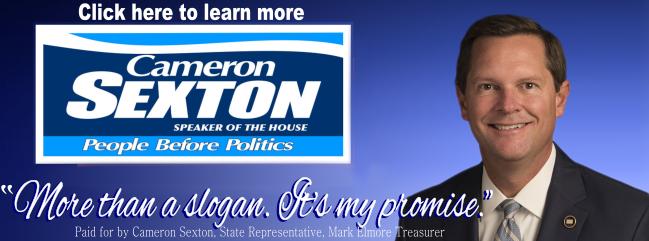FEDERAL APPEALS COURT UPHOLDS LAW REQUIRING SALE OR BAN OF TIKTOK IN THE U.S.
FORBES
12/6/24
Key Facts
The U.S. Court of Appeals for the D.C. Circuit denied TikTok’s petition to review the law, after both sides asked for a ruling by Dec. 6, before the nationwide ban’s scheduled Jan. 19 start date.
TikTok and creators on the app sued the federal government in an effort to halt the ban, which forces TikTok to either divest from Chinese-owned parent company ByteDance or else be banned from U.S. app stores.
TikTok argued the ban infringes on the company’s First Amendment rights and divesting from ByteDance is “not possible technologically, commercially, or legally,” while the government maintained the ban was essential for national security—though the specific evidence to justify that is under seal and was not publicly released.
The court ruled the federal government did not violate TikTok’s First Amendment rights because the law doesn’t target any specific speech on TikTok, noting that if TikTok just divested itself from ByteDance, the “new owners could circulate the same mix of content as before without running afoul of the Act” and ultimately ruling that the federal government’s aim in banning TikTok is “ending foreign adversary control, not content censorship.”
The panel of judges also sided with the government’s national security aims in passing the law and said it would be “wholly inappropriate” to “reject the Government’s risk assessment and override its ultimate judgment,” ruling that the law’s requirements for TikTok to just divest from ByteDance, rather than banning the app entirely, is the “least restrictive” way for the government to advance its “compelling national security interests.”
TikTok has not yet responded to a request for comment.
Crucial Quote
“We recognize that this decision has significant implications for TikTok and its users,” the panel of judges wrote in their ruling, but noted that the burden of TikTok becoming unavailable “is attributable to [China]’s hybrid commercial threat to U.S. national security, not to the U.S. Government.” “The First Amendment exists to protect free speech in the United States. Here the Government acted solely to protect that freedom from a foreign adversary nation and to limit that adversary’s ability to gather data on people in the United States.”
What To Watch For
The case is likely to get appealed to the Supreme Court before Jan. 19, though it’s unclear how long it will take that appeal to play out. TikTok could also ask the Supreme Court to block the law while the case remains pending—so it wouldn’t take effect unless the Supreme Court upholds the policy—and it’s unclear how justices could rule on that.
What Happens To Tiktok If Ban Takes Effect?
It’s unclear what the TikTok ban will look like in practice should the Supreme Court ultimately uphold it or it take effect on Jan. 19. The law doesn’t call for the app to suddenly be removed from users’ phones, but requires that it be removed from Apple and Google’s app stores, meaning American users could no longer download the app or install any new updates—so the app would eventually stop working. The legislation also applies to internet service providers who enable TikTok’s “distribution, maintenance, or updating,” however, which means Oracle—which handles TikTok’s user data in the U.S.—would also have to block access to TikTok or else face legal liability. It’s unclear as a result how much access there would be to TikTok in the U.S. after Jan. 19 as a result, and the company has not yet provided information on how it could handle other aspects of its U.S. operations—like fulfilling TikTok Shop orders or paying creators who have earned money on the app—should the ban take effect.
Can Trump Stop The Tiktok Ban?
If the appeals process continues beyond Jan. 20, President-elect Donald Trump—who reportedly wants to stop the TikTok ban—could press his administration to just not argue in favor of it at the Supreme Court, or argue against it. That would not make TikTok legal, however, unless the Supreme Court sided with him. The incoming president does have a few options to oppose the ban if it takes effect, however. Former DOJ official Alan Rozenshtein wrote in an op-ed for Lawfare that Trump could lobby Congress to repeal the ban—which is unlikely, given the legislation’s bipartisan support—or direct his Justice Department not to enforce the ban, though Apple and Google may still want to remove the app from their stores anyway in case Trump ever changed his mind. The most likely route Trump could take, Rozenshtein predicted, is for Trump to simply declare that TikTok is in compliance with the law and has adequately divested from ByteDance—whether it actually has or not. That would likely result in lawsuits from rival companies, however, Rozenshtein noted, which could still result in the app getting banned.
Surprising Fact
Though TikTok has long denied any wrongdoing, Forbes has reported on numerous concerns involving the company, including TikTok spying on journalists, tracking “sensitive” words, promoting Chinese propaganda criticizing U.S. politicians and mishandling user data. TikTok has denied the allegations against it or blamed actions on individual bad actors within the company, though the court noted in its ruling Friday that the company has not denied “that it collects a substantial amount of data on its users” or “that it has ever manipulated content on the TikTok platform at the direction of the [Chinese government].” The court referenced Forbes’ reporting in its ruling, noting that the public reports on TikTok provide “persuasive evidence” to justify the government’s ban and helped persuade the court to give “significant weight” to the judgment that lawmakers made in deciding TikTok poses a “national security threat.”
Big Number
More than 170 million. That’s how many people in the U.S. use TikTok, according to the company, which is approximately half of the country’s total population.
Key Background
President Joe Biden signed the TikTok ban into law in April as lawmakers had become increasingly opposed to the social media app, banning it from government devices and warning about its Chinese ties before taking the extreme step of trying to ban the app entirely. TikTok has long denied having any links to the Chinese government, and the federal government has not made public any of the specific intelligence it’s used to justify its hostility against the company. The court ruling on the ban’s fate came after multiple other courts have ruled against bans on TikTok in the past, with Montana’s statewide ban on the app getting blocked in court and judges ruling against Trump’s effort to ban TikTok during his first term. The ex-president sought to outlaw the app while in office before changing his tune and praising TikTok ahead of the 2024 election, as his supporters have boosted him on the app and billionaire GOP megadonor Jeff Yass, a ByteDance investor, has lobbied against the ban. Trump’s about-face on TikTok is in line with general public sentiment, as polling shows banning TikTok has become increasingly unpopular with Americans. Only 32% supported a ban on the app as of July and August, according to the Pew Research Center, down from 50% who backed a ban in March 2023.
Tangent
The legal debate over the federal TikTok ban comes as Canada has also recently taken action against the company, shutting down TikTok’s Canadian operations in November and closing its office in the country. The government did not ban the app entirely, however, so Canadians can still access and use TikTok unlike under the U.S.’s ban. A number of other major countries have banned TikTok from being on government devices, such as Australia, New Zealand and many European countries, but only Afghanistan, India, Pakistan, Somalia and Taiwan have restricted access to the app besides the U.S.






